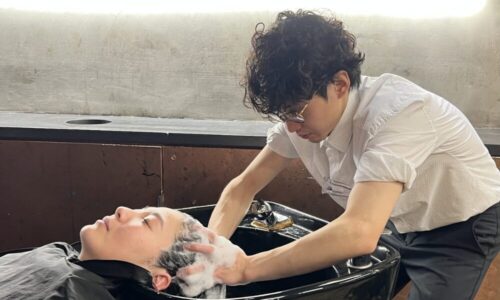Learning from UK Healthcare: The Art of Seeing the Essence in Beauty

When I was living in the UK, there was always a specific route to take whenever I needed to go to the hospital.
That was through the “GP (General Practitioner),” or what we might call a “family doctor.”
No matter what symptoms you have, you first go to your GP for an initial examination, and then you’re referred to a specialist if needed.
Whether your eye hurts, your stomach aches, or you injured your leg — you always start with the GP.
That’s the foundation of the UK healthcare system.
⸻
But in Japan, things are different.
If your eyes hurt, you go to an ophthalmologist; if your stomach hurts, you visit an internist; if your back hurts, you go to an orthopedist.
People decide for themselves which specialist to see.
On the surface, that seems smooth and convenient, but I’ve always felt a bit of discomfort with that system.
Because even if your stomach hurts, the cause may not actually be in the stomach itself.
It could be a neurological issue, stress, or a sign from another organ.
Yet people decide, “Maybe it’s internal medicine,” and head straight there.
I think that might sometimes take us further away from finding the real, root cause.
⸻
That’s when I realized something.
“This way of thinking is actually very similar to beauty.”
Hairdressers are experts in hair, yes, but we don’t just look at hair itself.
We look at everything — hair texture, bone structure, scalp condition, lifestyle habits, even thought patterns.
It’s all connected, and focusing on just one small area rarely leads to a true solution.
⸻
In Japan, many salons promote themselves by saying, “We do everything — cuts, colors, perms.”
And that’s great in its own way.
But I believe each hairdresser should also have a “specialty” or “area of expertise.”
Some specialize in cutting, others in straightening, bleaching, coloring, or scalp care.
Each has their own strengths, and that’s perfectly fine.
In fact, making those strengths clear helps clients find the stylist who truly suits them.
⸻
Just like the GP system in the UK — imagine if there were “general hairdressers” who first take a holistic look,
and then connect clients to “specialists” with advanced technical skills.
If such a structure existed, I think many people could solve their hair concerns more fundamentally.
⸻
Through my experience in London, I’ve worked with clients of many nationalities, ethnicities, and hair types.
That’s why I always value respecting individual differences in hair texture and preferences,
and helping each person overcome their insecurities to boost their self-esteem.
My specialties are haircutting and scalp care.
Through cutting, I help improve impressions and ease insecurities.
Through scalp care, I help promote healthy circulation.
Together, these approaches help clients experience more moments in daily life where they can truly like themselves.
That’s the purpose behind my work.
⸻
Hair is composed of “dead cells,” which means once it’s damaged, it can never fully return to its original state.
That’s why prevention and careful treatment are so important.
Rather than “just cutting” or “just coloring,” we should first “understand the current condition of the hair and make the best choice.”
That, to me, is the medical way of thinking applied to beauty.
⸻
My salon is fully private, accepting only two clients per day on a completely one-on-one basis.
From start to finish, I work closely with each person’s hair.
It’s not about taking time for the sake of it — it’s about “seeing accurately.”
Just like a GP, I aim to practice beauty that addresses the root cause, not just the surface.
If your hair concerns and worries can be lightened, even just a little,
and you can think, “Today feels like a good day,”
then that would truly make me happy.


